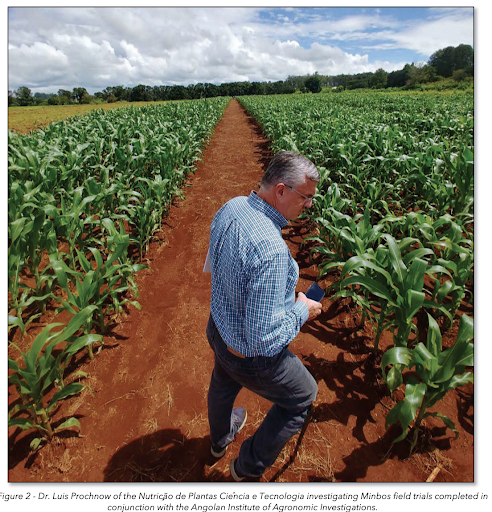Positive fertiliser trials results; large cost savings expected
Our Angola-based phosphate fertiliser and green ammonia Investment Minbos Resources (ASX:MNB) has reported successful trials of its phosphate rock product.
We see this as important validation of MNB’s product - and this should contribute to the overall economic case for the project.
New results from three years of field trials in Angola and five years of greenhouse trials at the International Fertilizer Development Center (IFDC) have delivered a phosphate fertiliser product that is fit for purpose for the local agricultural market — MNB’s primary target market.
The product was shown to be suitable for use as a phosphate nutrient in Angola’s acidic soils and high rainfall environment, and at an attractive price point.
The field trials across more than ten locations in Angola trialling maize, wheat and potatoes delivered large yield increases.
In the IFDC greenhouse trials in Alabama on wheat, maize, soy, sorghum, it was demonstrated that a single application of MNB’s phosphate fertiliser before the first crop can improve yields in two successive crops.
The trials have confirmed that MNB’s phosphate rock is suitable as a direct application fertiliser product in soils with acidity of pH <5.5. Importantly, this includes much of the area of interest of the Angola Fertilizer and Farm Productivity Program (AFFPP) which has lodged an MOU for 120,000tpa of MNB’s phosphate fertiliser.
The findings of these trials are an important development that underpin the recently announced Definitive Feasibility Study (DFS) for MNB’s Cabinda Phosphate Project in Angola where construction is now underway.
The results further confirm the simplicity of the production flowsheet that is required to create the phosphate product.
MNB confirms that a review is now underway on a simplified flowsheet, which is expected to deliver “significant CAPEX savings”.
Lower capital costs is always good news, but this is significant for MNB because the CAPEX estimate that was used in the DFS was notably higher than the figure used in the earlier Pre-Feasibility Study due to the exceptionally high rate of global inflation at that time.







